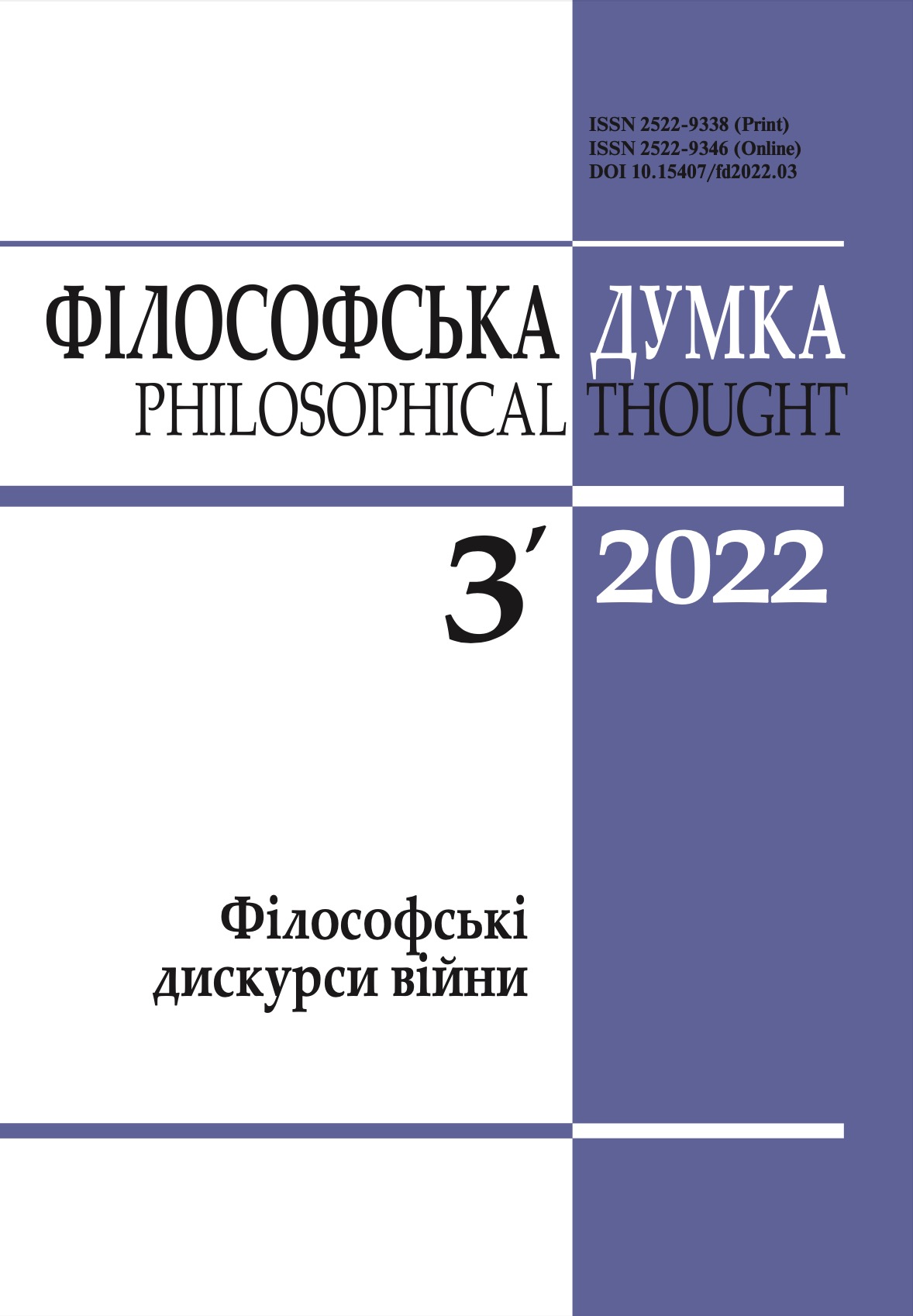STRATEGIC RATIONALITY OF MASS CULTURE
YOUNG SCIENTIST’S PAGE
DOI:
https://doi.org/10.15407/fd2022.03.155Keywords:
mass culture, masses, strategic and communicative rationality, J. Habermas, T. AdornoAbstract
The article deals with a role of mass culture in term of the theory of the culture industry by M. Horkheimer and T. Adorno and the theory of communicative action by J. Habermas, who continues research of the Frankfurt school. It is known that Habermas says about two types of rationality — communicative and structural. The lifeworld and the system correspond them. Usually, culture correspond to lifeworld because it helps people`s socialization. Also it is a place for communication and finding new meanings. However, a place of mass culture is very controver- sial. In particular, it is necessary to distinguish between popular and mass culture, because these definitions have been used as interchangeable for a long time. Popular culture is still an area of meanings. Moreover, it has the potential for protest. From this point of view, it is clearly part of the life world. But mass culture as a «cultural industry» is not so unambiguous. It is worth considering its characteristics and role in people’s life more detail. Above all, one cannot help paying attention to masses. Already in the last century, H. Arendt characterized them as an atomized and isolated group of people, and they are not united by any common ideas. After all, even in the modern world it is possible to see that they do not have and do not want to search for any ideas or meanings. Masses are a direct consumers of mass culture. It is consumerism that the characteristic feature of modernity. Therefore, mass culture is inseparably connected with the market. On the one hand, it sells entertainments, and on the other hand, it generates new consumers, because it is related to advertising. In the same way, mass culture is connected with agitation and propaganda. Thus, it is possible to speak about its connection with politics. The market and politics correspond to the system and are guided by strategic rationality. This fact gives reason to talk about mass culture as a strategic tool. Such culture with no meanings leads to a crisis in society.
References
Adorno, T.W. (2001). The Cultural Industry. Selected essays of mass culture. London, New York: Routledge.
Arendt, H. (2017). The Origins of Totalitarianism. London: Penguin.
https://doi.org/10.2307/j.ctv19fvzzk.50
Baudrillard, J. (2007). In the shadow of the silent majorities, or, The end of the social. Los Angeles: Semiotext(e).
Goncales Silva, F. (2018). Colonization of the lifeworld. The Cambridge Habermas lexicon (pp. 36- 39). New York: Cambridge University Press.
https://doi.org/10.1017/9781316771303.012
Guzhva, A. (2021). Political Populism and Popular culture. [In Ukrainian]. Filosofska Dumka, 3, 125-137.
https://doi.org/10.15407/fd2021.03.125
Habermas, J. (2000). The Structural Transformation of the Public Sphere [In Ukrainian], Lviv: Litopys.
Han, S. (2022). AI, culture industry and entertainment. The Routledge social science Handbook of AI (pp. 295-313). London and New York: Routledge.
https://doi.org/10.4324/9780429198533-21
Horkheimer, M., Adorno, T. (1997). Dialectic of Enlightenment. Philisophical fragments. [In Russian]. Moscow, St. Peterburg: Medium, Juventa.
Jaspers, K. (1991). The Spiritual Condition of the Age. The origin and goal of history. [In Rus- sian]. Moscow: Izdatelstvo polititcheskoi literatury.
Koch, G. (2017). Mass Culture and Cultural Criticism. The Habermas Handbook (pp. 590- 594). New York: Columbia University Press.
https://doi.org/10.7312/brun16642-067
Lash, S. (2003) Sociology of postmodernism [In Ukrainian]. Lviv: Kalvaria.
Lutyi, T. (2019). Mass and popular culture: the problem of demarcation. [In Ukrainian]. Naukovi zapysky NaUKMA. Philosophy and Religious Studies, 3, 85-99.
https://doi.org/10.18523/2617-1678.2019.3.85-99
Lutyi, T. (2020). Culture of Attraction and Resistance. [In Ukrainian]. Kyiv: Tempora.
Ortega y Gasset, J. (1994). The Revolt of the Masses. [In Ukrainian]. Selected assays (pp. 15-. Kyiv: Osnovy.
Popper, K. (1994). The Open Society and Its Enemies (vol. 20). [In Ukrainian]. Kyiv: Osnovy.
Stevenson, N. (1993). Habermas, Mass Culture and the Future of the Public Sphere. Berkeley Journal of Sociology, 38, 221-245.
Sytnichenko, L.A. (2005). Communicative-dialogical concept of identity in the context of modern philosophical discussions [In Ukrainian], Multiversum, 48.
Yermolenko, A. (2018). How the truth is possible in the «post-truth situation». [In Ukrainian], Filisofska dumka, 5, 21-26.
Downloads
-
PDF (Українська)
Downloads: 337
Published
How to Cite
Issue
Section
License
Authors who publish with this journal agree to the following terms:
- Authors retain copyright and grant the journal right of first publication.
- Authors are able to enter into separate, additional contractual arrangements for the non-exclusive distribution of the journal's published version of the work (e.g., post it to an institutional repository or publish it in a book), with an acknowledgement of its initial publication in this journal.
- Authors are permitted and encouraged to post their work online (e.g., in institutional repositories or on their website) prior to and during the submission process, as it can lead to productive exchanges, as well as earlier and greater citation of published work (See The Effect of Open Access).


